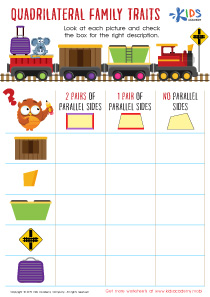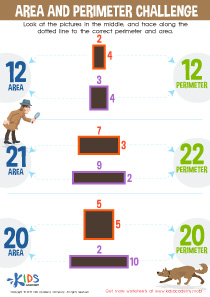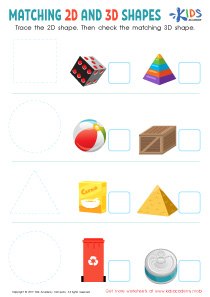Fractions of Shapes Worksheets for Ages 3-7
38 filtered results
-
From - To
Discover our engaging "Fractions of Shapes Worksheets," specially designed for children aged 3-7. These interactive resources provide a fun way for young learners to grasp the concept of fractions through colorful shapes. Kids can explore dividing shapes into equal parts, identifying fractions, and recognizing relationships through hands-on activities. Our worksheets promote visual learning and foster a deeper understanding of mathematical concepts while encouraging creativity. Ideal for home schooling or classroom use, these worksheets help children build a strong foundation in math. Download now to support your child's learning journey in a playful and effective way! Perfect for little mathematicians!
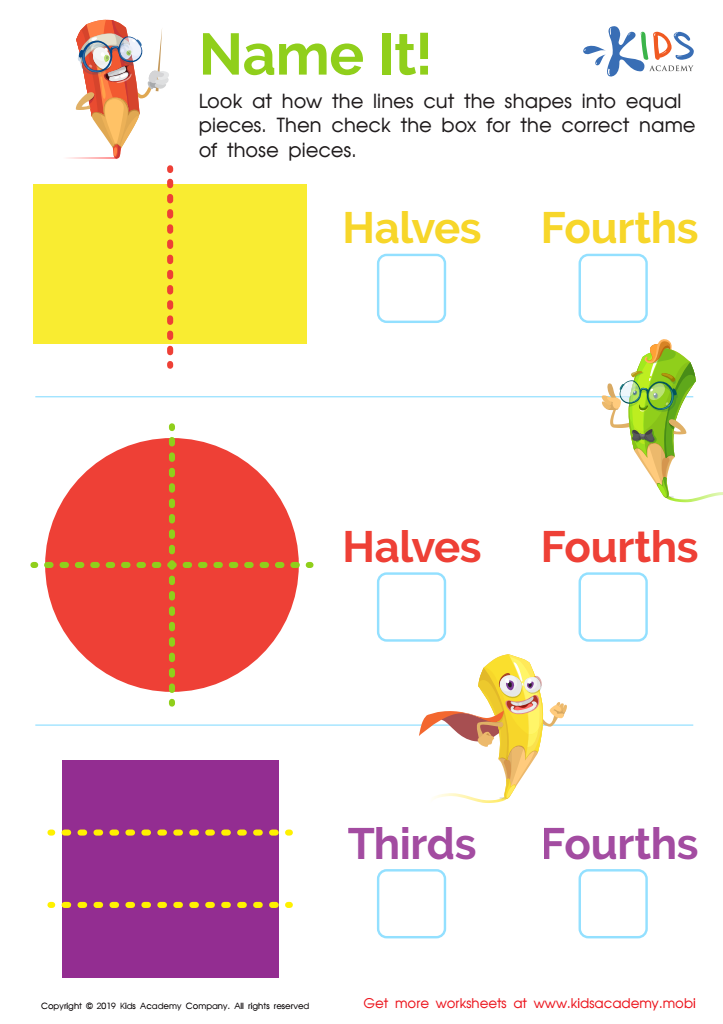

Name It! Worksheet
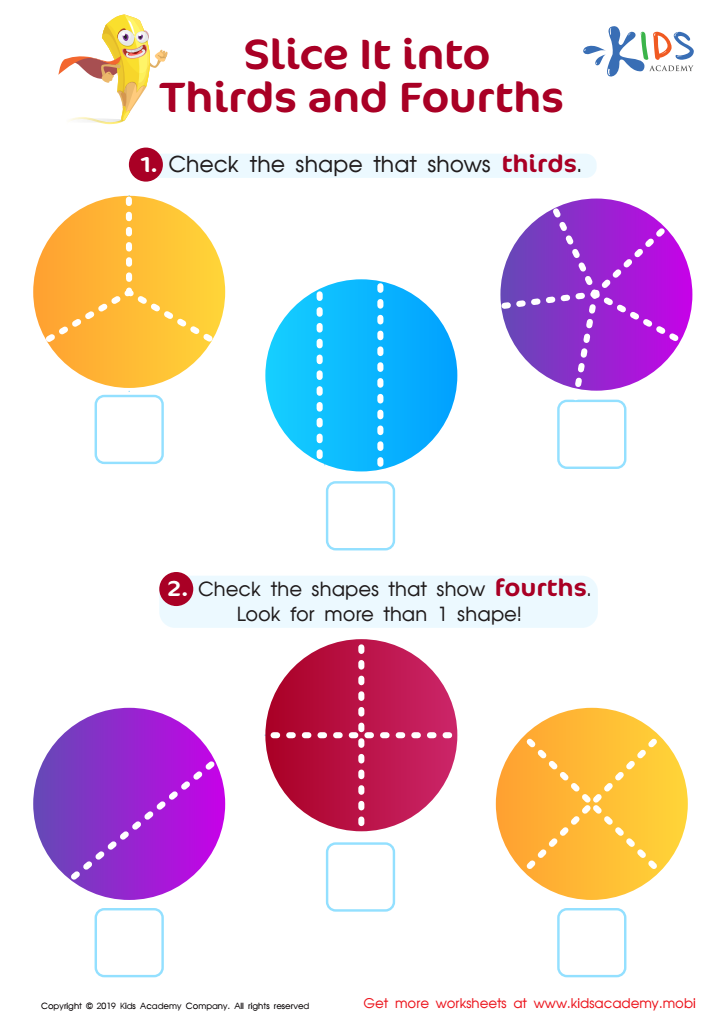

Slice in Thirds Fourths Worksheet
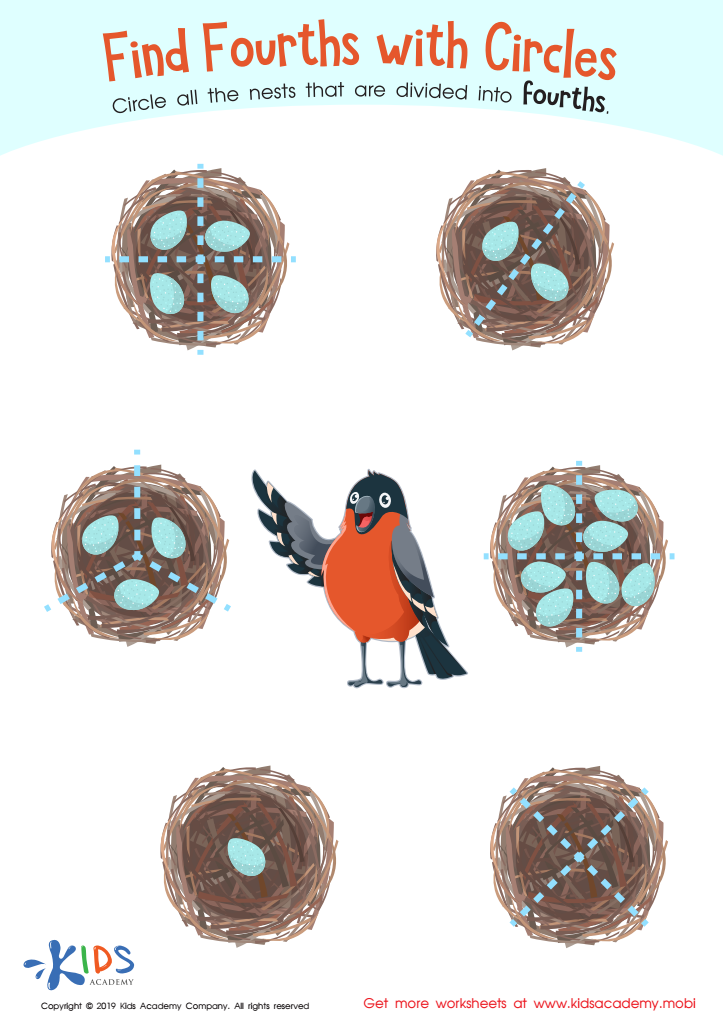

Find Fourths Circles Worksheet
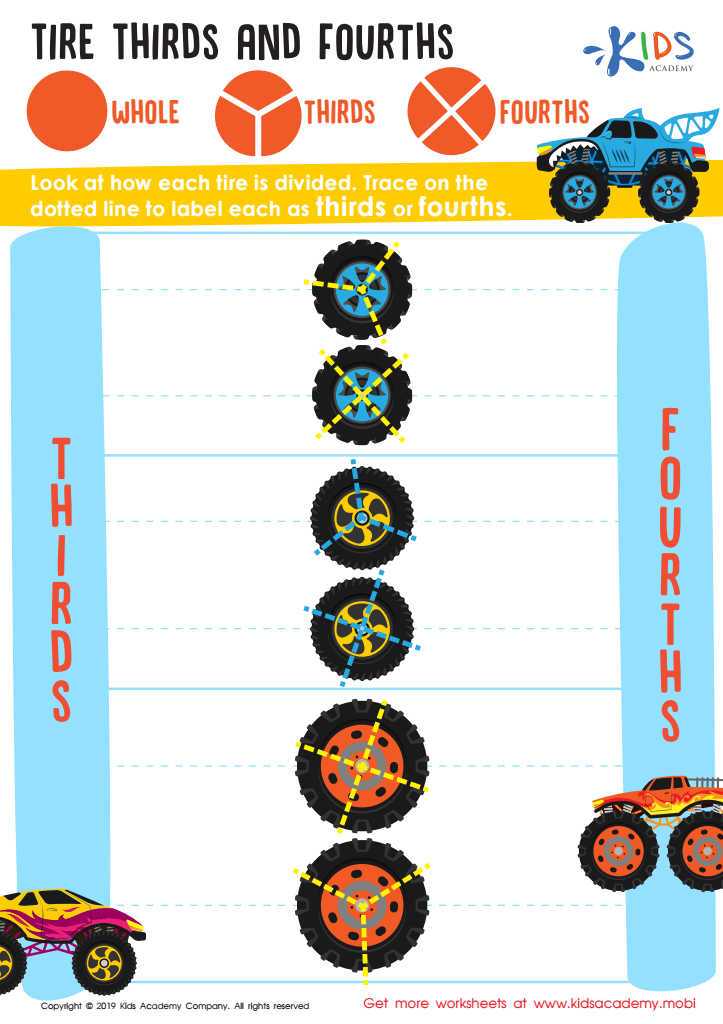

Tire Thirds and Fourths Worksheet
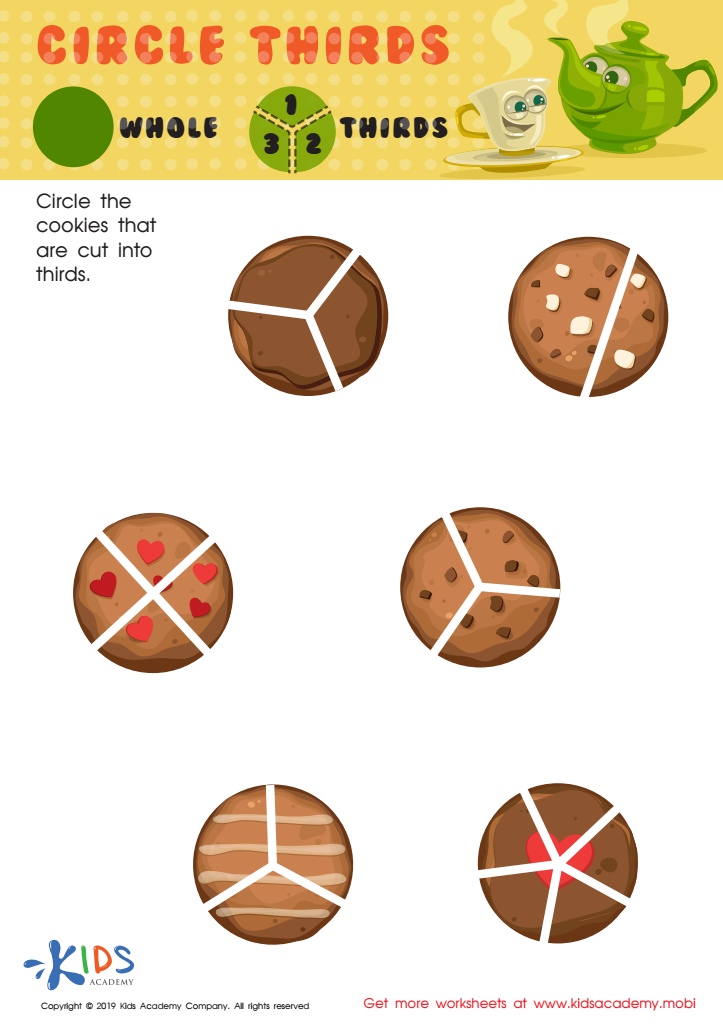

Circle Thirds Worksheet
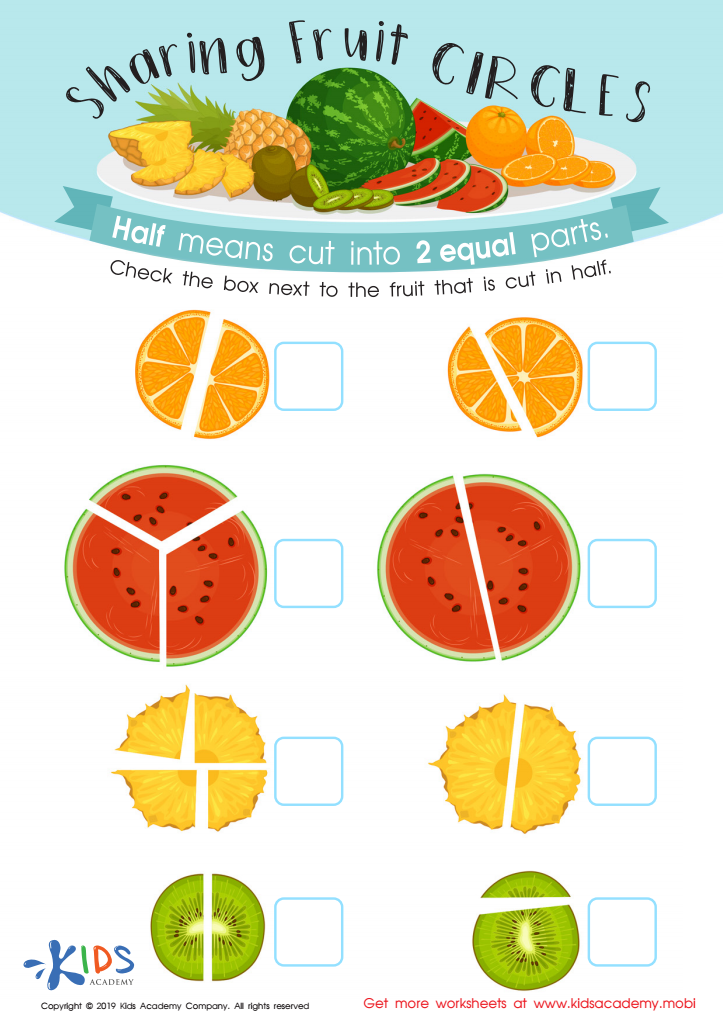

Sharing Fruit Circles Worksheet
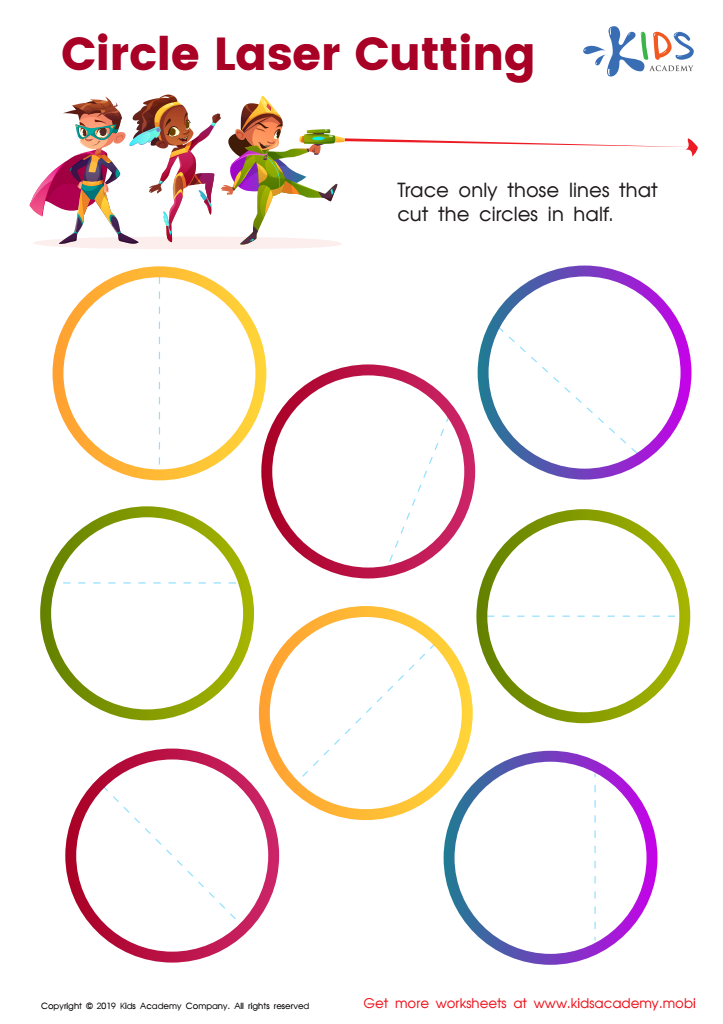

Circle Laser Cutting Worksheet
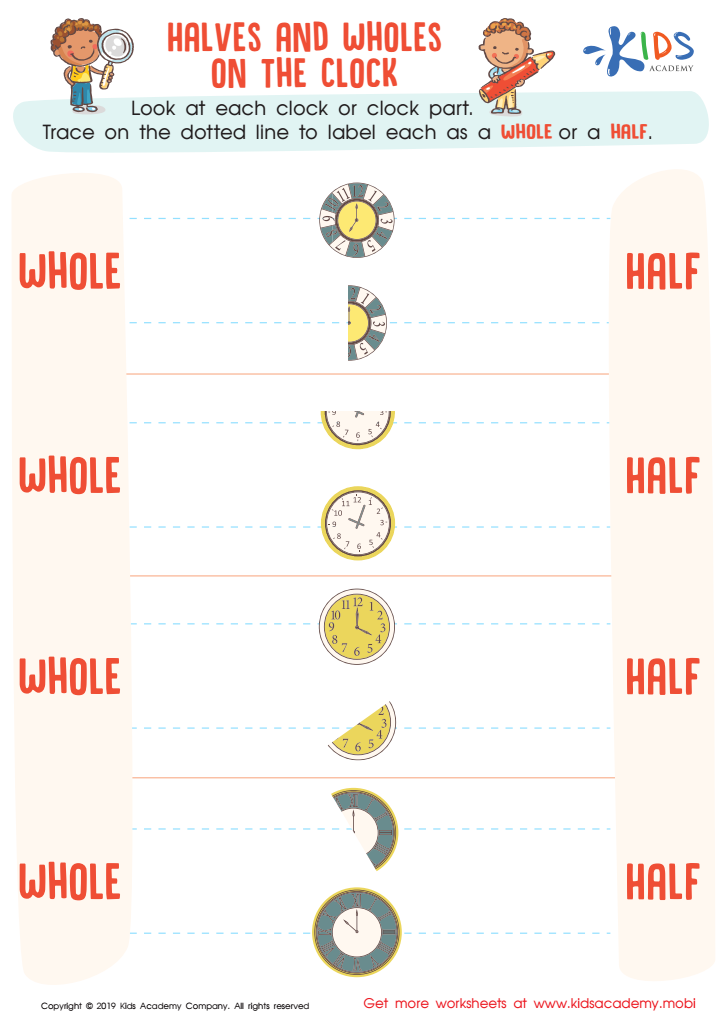

Halves and Wholes on the Clock Worksheet
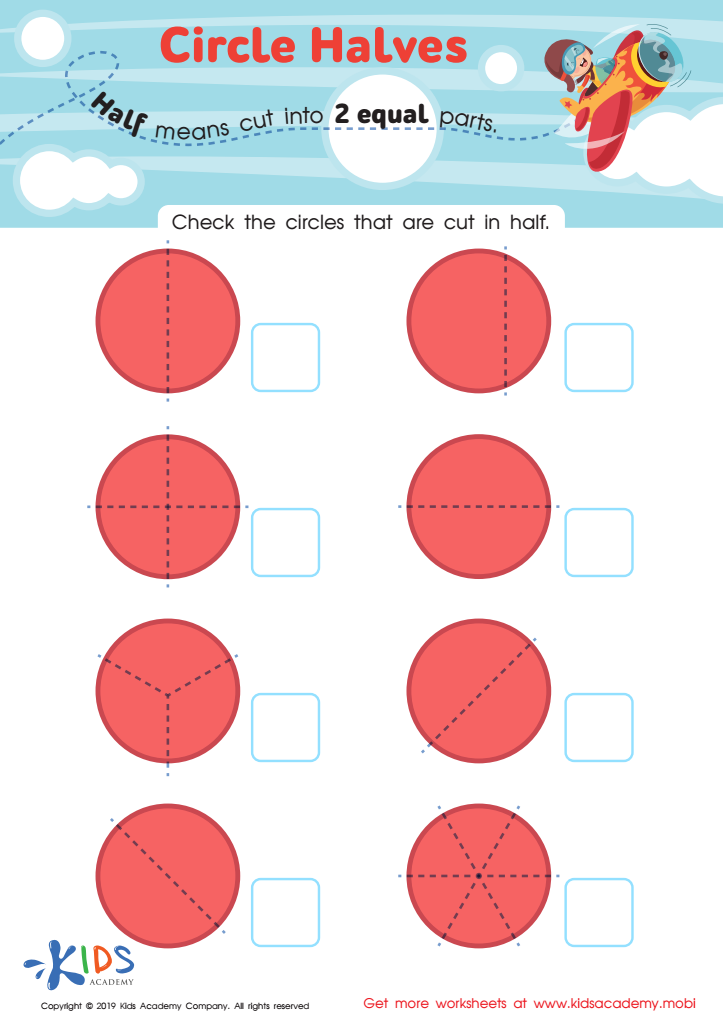

Circle Halves Worksheet
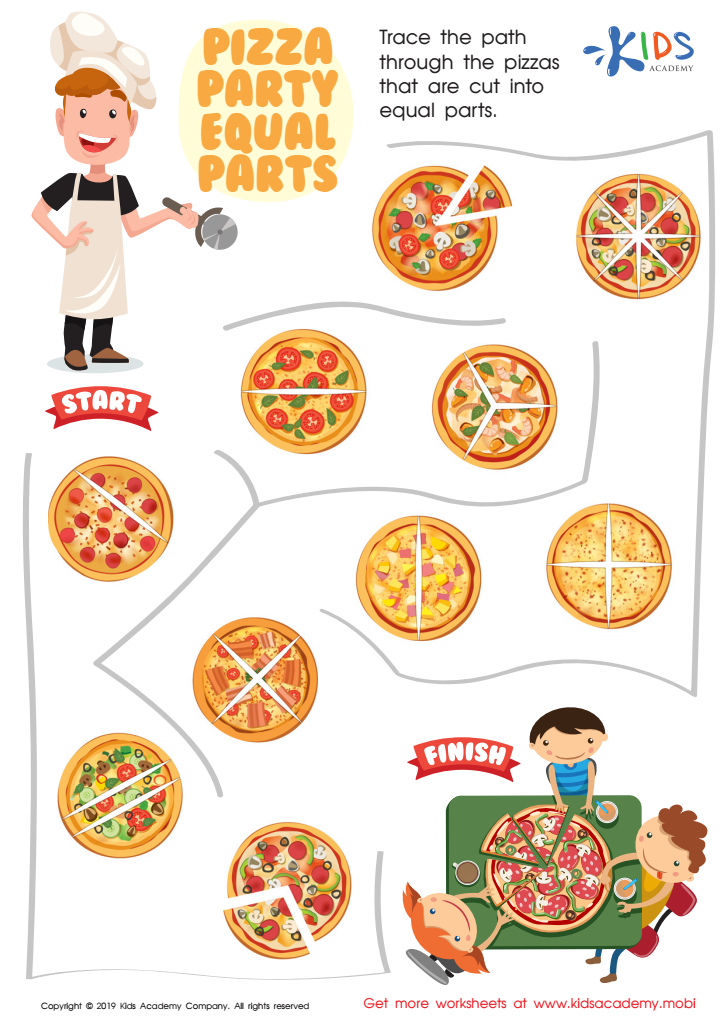

Pizza Party Equal Parts Worksheet
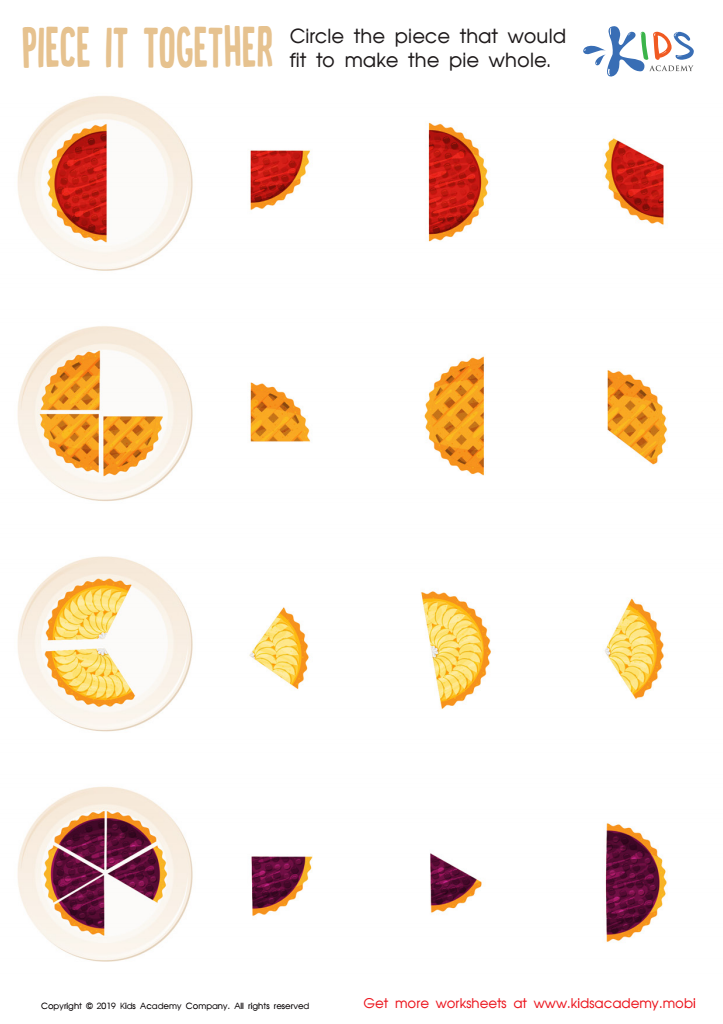

Piece it together Worksheet
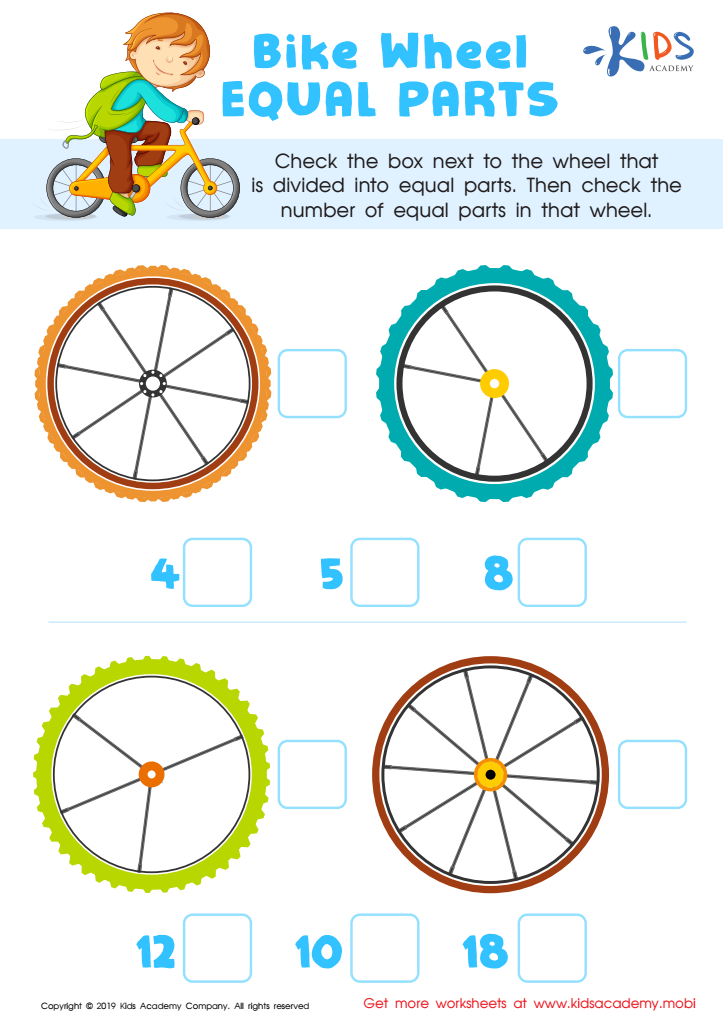

Bike Wheel Equal Parts Worksheet
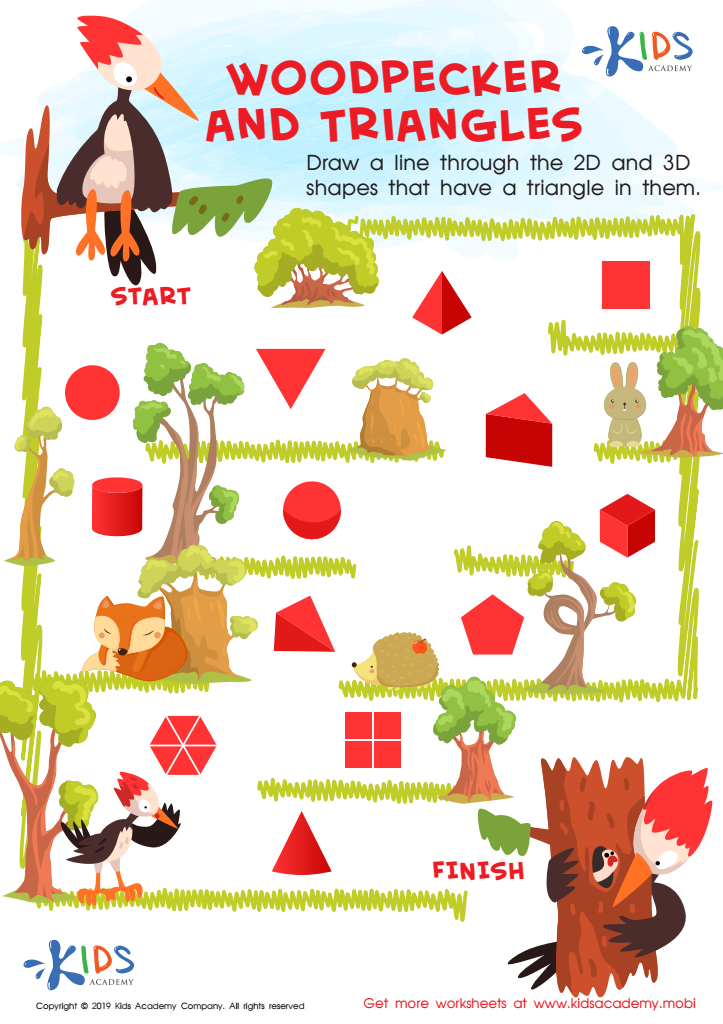

Woodpecker and Triangles Worksheet
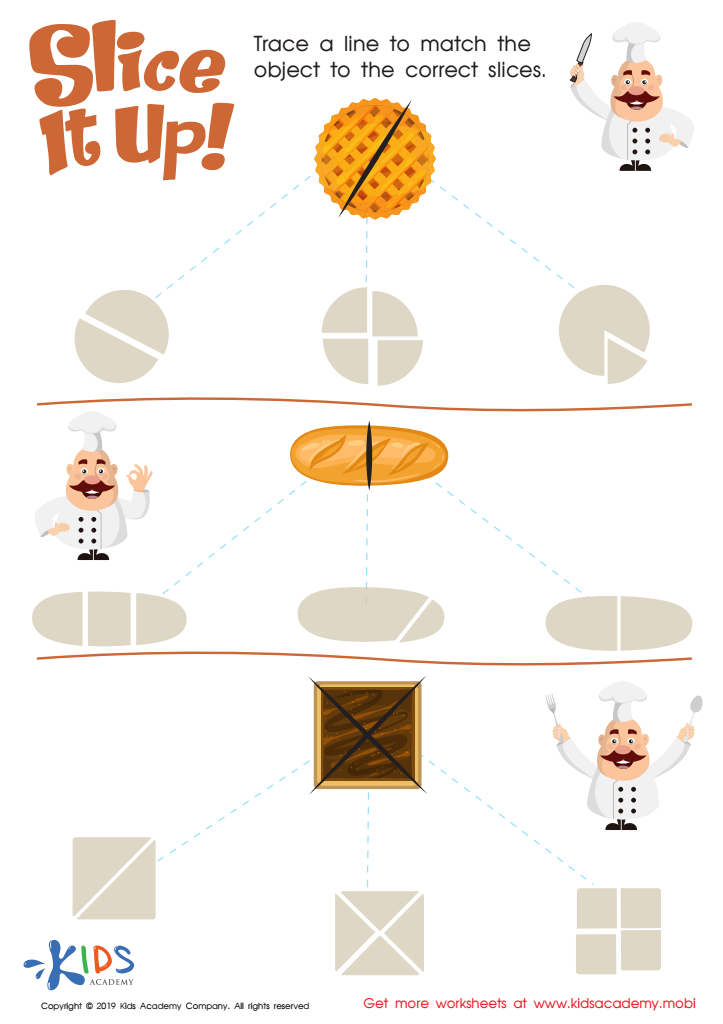

Slice It Up Worksheet
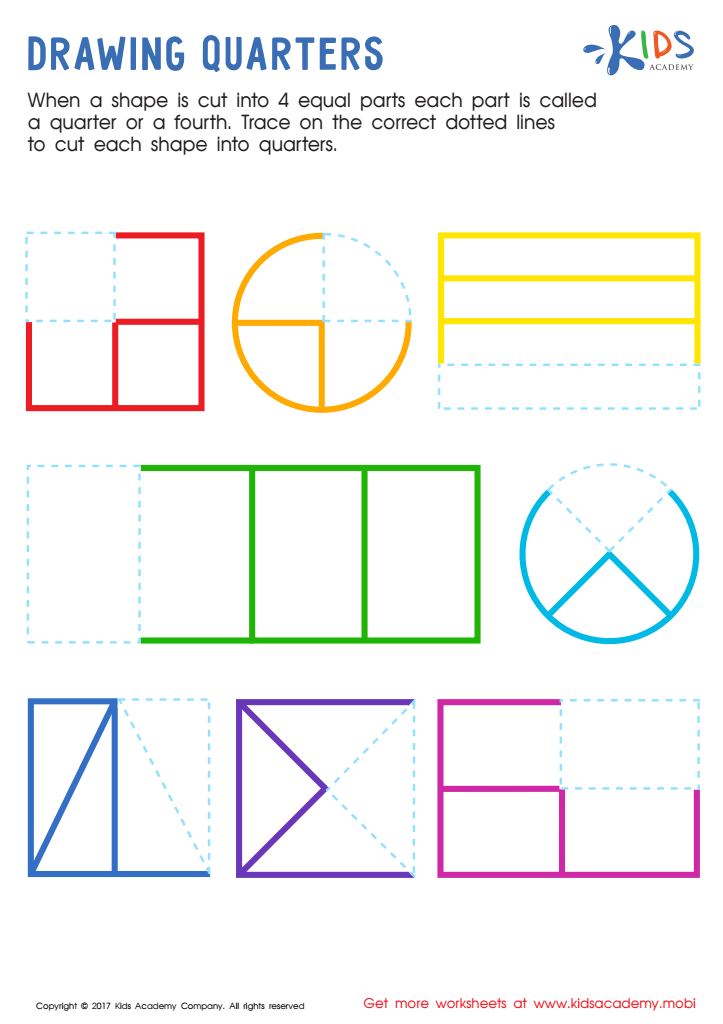

Drawing Quarters Worksheet
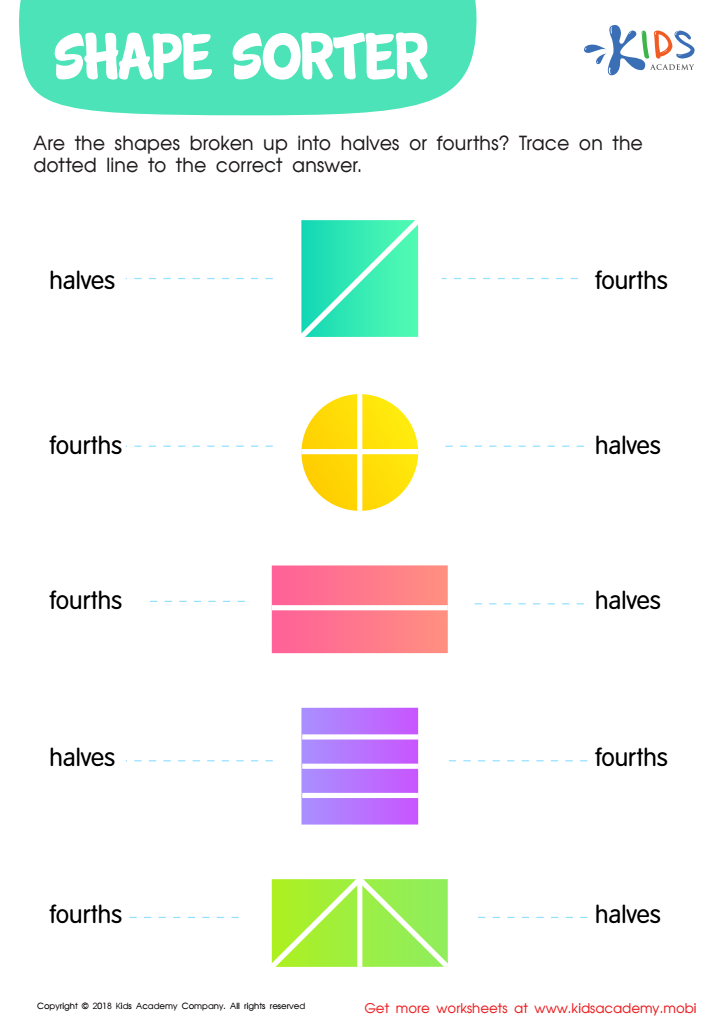

Shape Sorter Worksheet
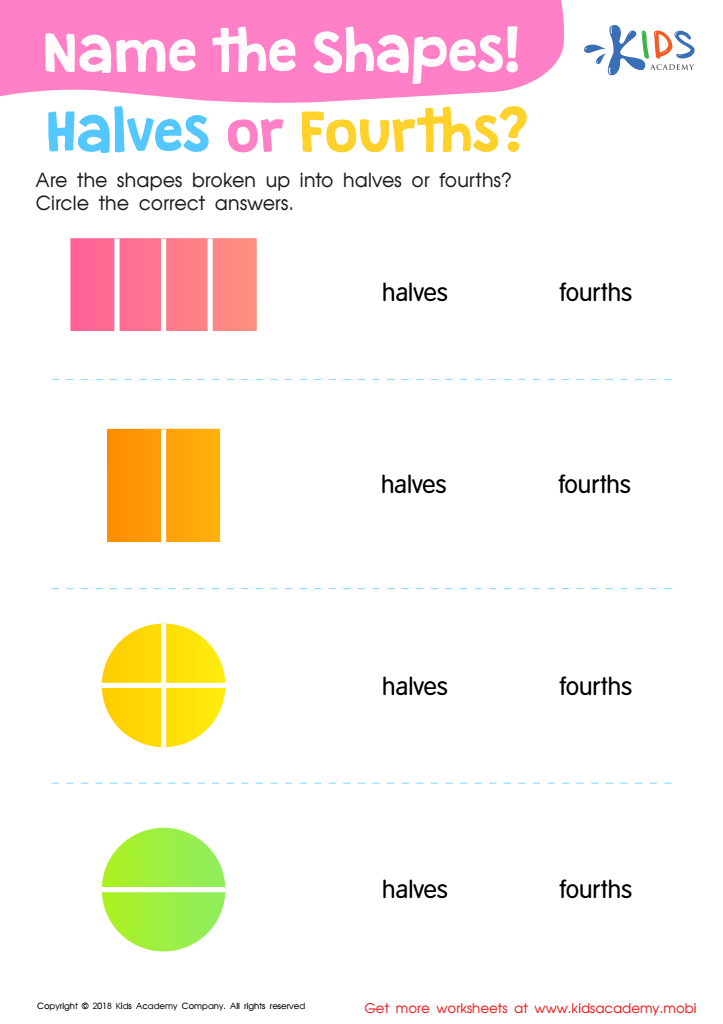

Name the Shapes Halves or Fourths? Worksheet
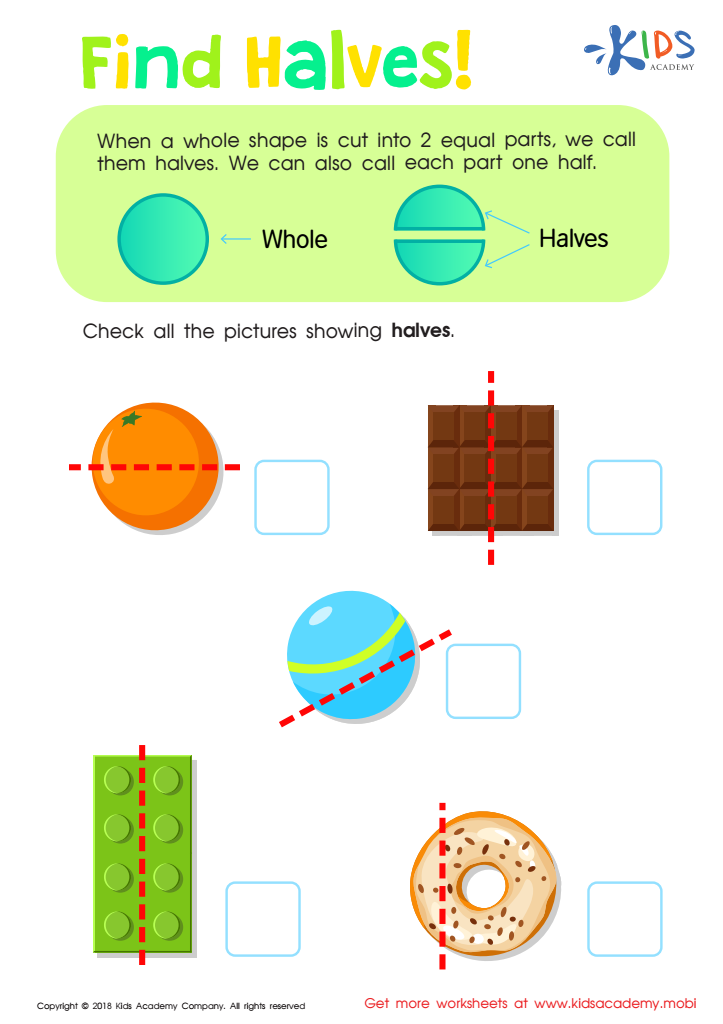

Find Halves Worksheet
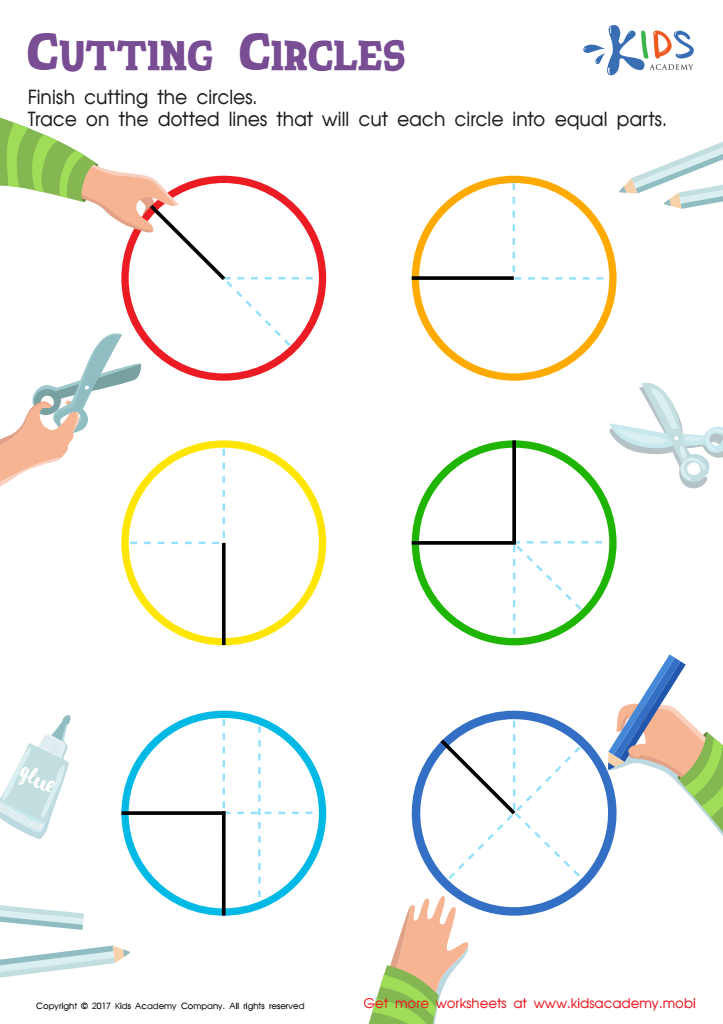

Cutting Circles Worksheet
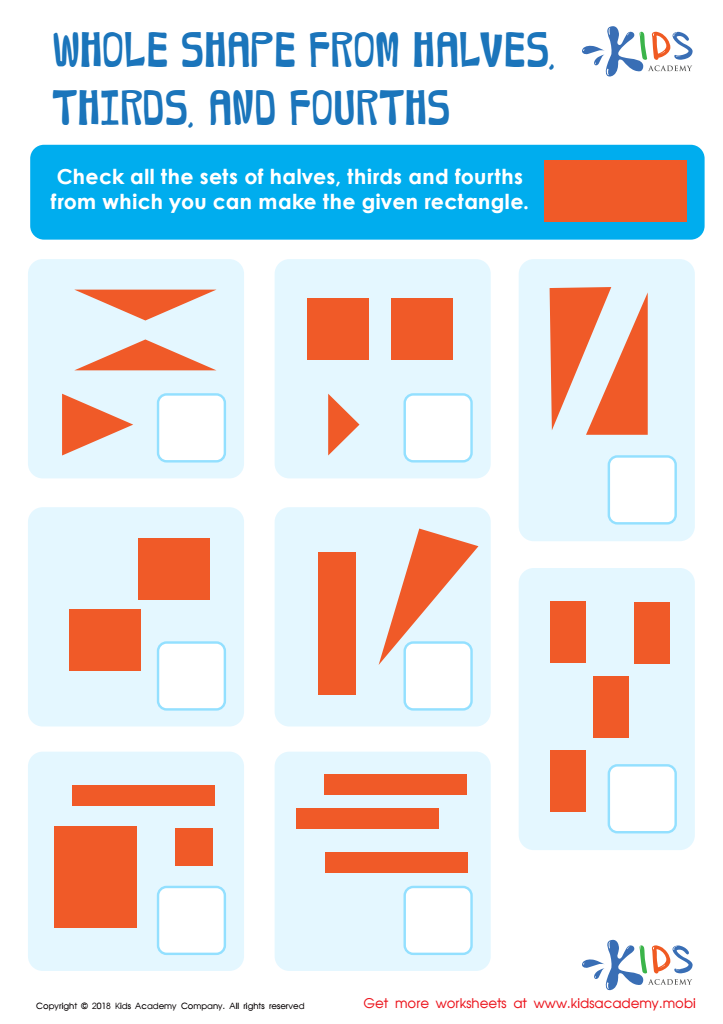

Whole Shape from Halves, Thirds and Fourths Worksheet
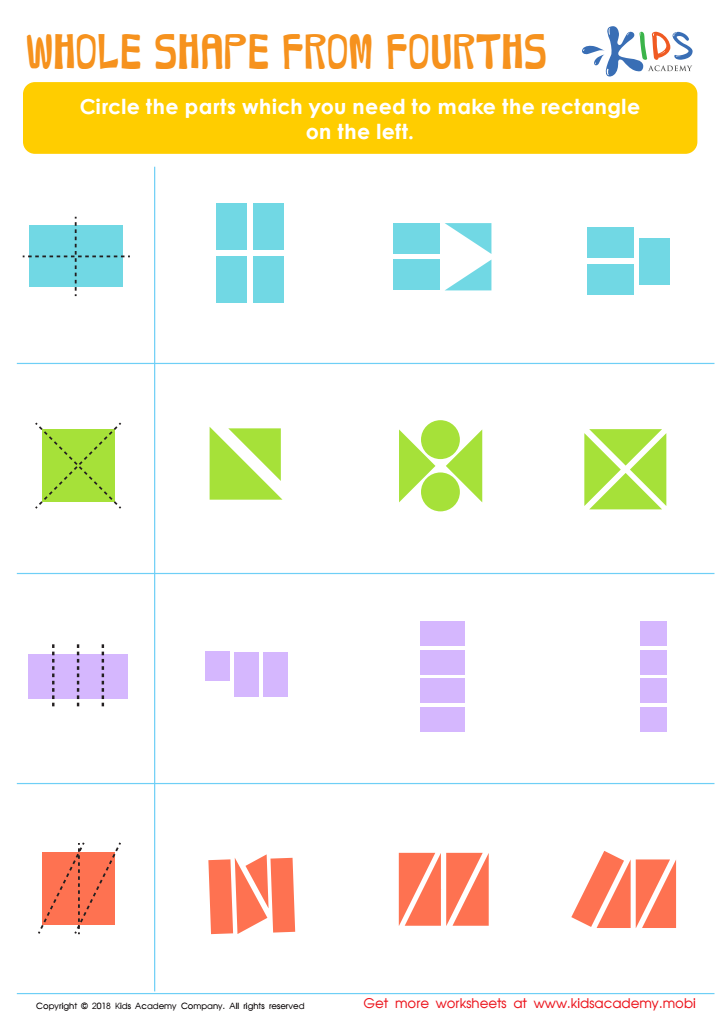

Whole Shape from Fourths Worksheet
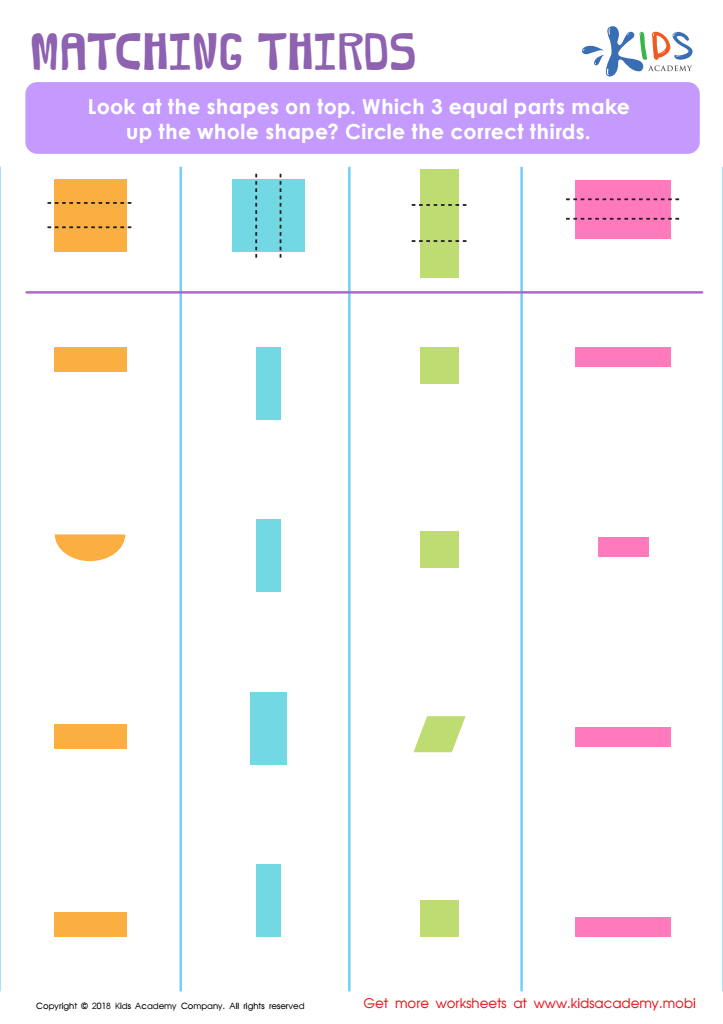

Matching Thirds Worksheet
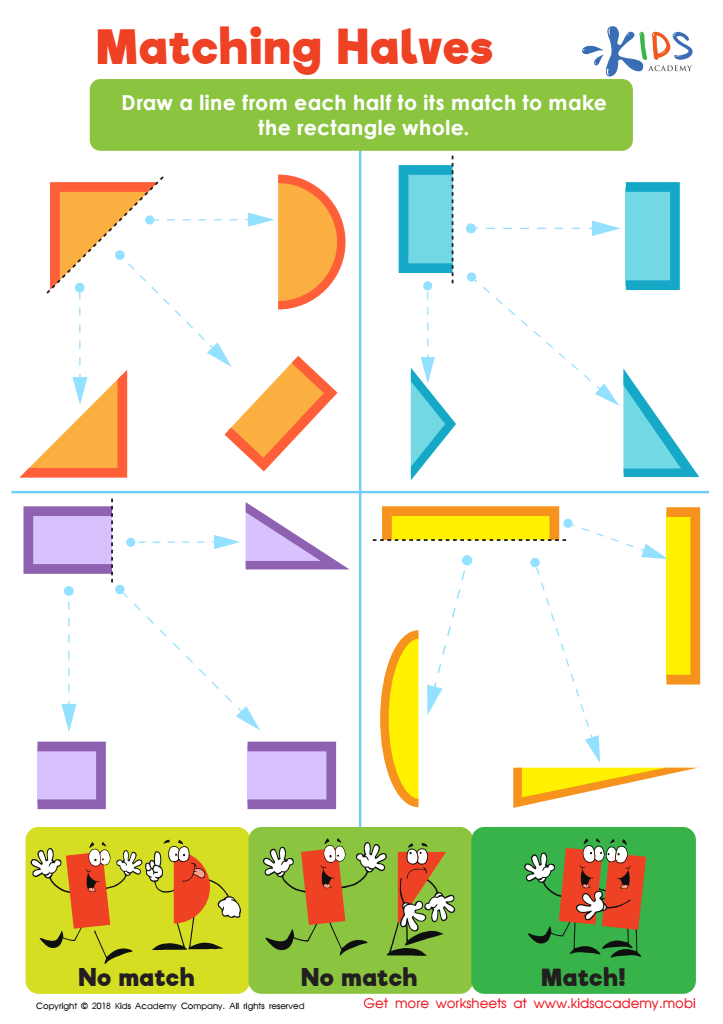

Matching Halves Worksheet
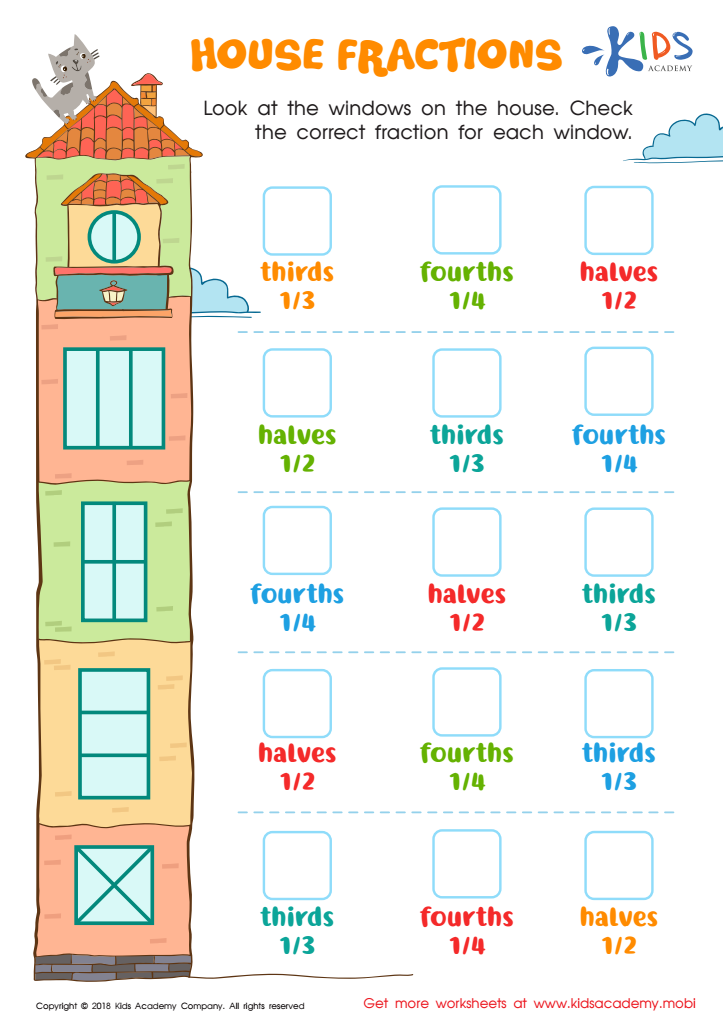

House Fractions Worksheet
Understanding fractions of shapes is crucial for young learners aged 3-7 because it lays the groundwork for essential mathematical skills that will benefit them throughout their academic journey. At this age, children are naturally curious, and introducing concepts of fractions through shapes not only captures their interest but also integrates visual and tactile learning experiences. By engaging with shapes—like circles, triangles, and squares—children can see how these shapes can be divided into equal parts, helping them comprehend the concept of "fairness" and equality.
Moreover, recognizing fractions nurtures critical thinking and problem-solving skills. It encourages children to make comparisons and build relationships, essential skills in math and beyond. Activities involving shapes can enhance fine motor skills and foster creativity, as children color, cut, or assemble shapes while learning about halves, quarters, and thirds.
Additionally, these foundational skills support more advanced mathematical concepts as children progress, such as addition, subtraction, and even geometry. By fostering a love for learning fractions at a young age, parents and teachers help children feel confident and competent in their mathematical abilities, arithmetic, and shape recognition. Overall, teaching fractions of shapes cultivates a constructive learning environment that promotes curiosity and exploration.
 Assign to My Students
Assign to My Students












